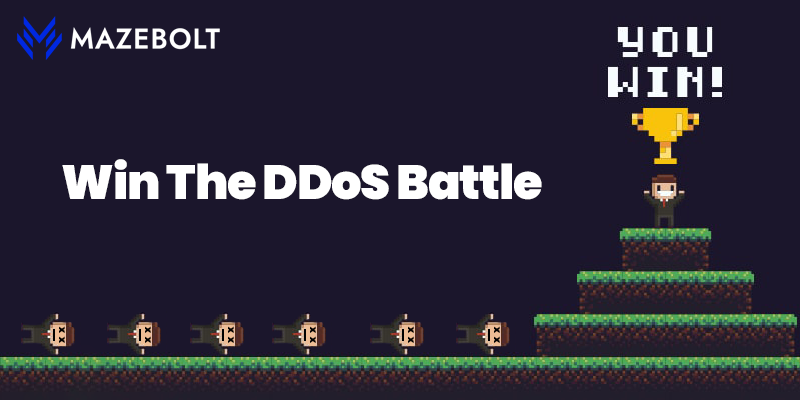DDoS Attacks on Gaming Companies 2021
Recently, Blizzard Entertainment was attacked over a weekend, and its popular games, such as Overwatch, Diablo, World of Warcraft, StarCraft, and Warcraft, went offline. Over the last three years, downtime and latency have drastically affected Blizzard’s player base, which has fallen by 29%, and its monthly active users have declined from $38 million to $27 million. The opposite is also true, and gamers will remain loyal if they are assured of a great gaming experience. For example, the top games of 2021 include PUBG and Fortnite, but these games have been around for over 5 years. Call of Duty, which is also on the list, has been around for nearly 2 decades.
But now, more than ever before, DDoS attackers are targeting the gaming industry and continuously causing latency and downtime to popular games.
High profile DDoS Attacks on the Gaming Industry in 2021:
| Square Enix | Players in Europe disconnected or faced difficulty logging into MMO RPG Final Fantasy XIV. |
| Paradox Interactive | Hearts of Iron IV fans were disturbed as sessions crashed, preventing access to the WW2 game online. |
| Respawn Entertainment | The Apex Legend game’s server went offline. |
| Blizzard Entertainment | High latency and disconnections at the launch of the famous `Burning Crusade Classic’ game. |
| Sony Computer Entertainment | The game LittleBigPlanet went down for over a month with no fix in sight. |
| Respawn Entertainment | Popular games Titanfall 1 and 2 and Titanfall two experienced downtime preventing player access. |
| Oakland Athletics | Oakland Athletics fans were met with error messages on the first day of ticket sales. |
| Sony Computer Entertainment | Fans of the popular video game LittleBigPlanet have been unable to access online features. |
| Riot Games League | Reported outages and problems with login issues. Riot canceled matches and had to refund money. |
| Blizzard Entertainment | The attack caused high latency and disconnections, especially for players of World of Warcraft. |
Most, if not all, gaming companies rely on best-of-breed mitigation solutions. Unfortunately, they continue to face DDoS attacks that penetrate top mitigation solutions, allowing DDoS attacks in real-life battles with the attackers to win most of the time.
Why Isn’t DDoS Mitigation in Gaming Enough Protection?
-
Ongoing platform innovations and changes to the network from new game versions result in vulnerability gaps.
-
Custom network protocols are built to maximize speed which confuses IT personnel who may not be able to distinguish between genuine traffic and a DDoS attack.
-
Sudden and complex multi-vector attacks catch IT by surprise and cause downtime before they can be identified and mitigated.
-
Small attacks with unlimited usage that sell cheap on the darknet.
-
Narrow targeting and single points of failure are relatively easy to launch on gaming platforms.
-
There is limited information on attacks before they happen, as mitigation solutions do not have this information. DDoS mitigation solutions react to an attack after the attack comes in, and then they mitigate attacks, i.e., organizations get hit, go down, but later recover.
How MazeBolt’s RADAR™ testing Protect Against Further DDoS Attacks?
Automatic, continuous DDoS testing: With any mitigation solution installed, RADAR™ testing offers superior DDoS coverage and automated DDoS protection. The solution tests over 140 attack vectors with all public-facing IPs 24/7, giving real-time visibility into all DDoS vulnerabilities with zero downtime across your organization’s entire attack surface.


